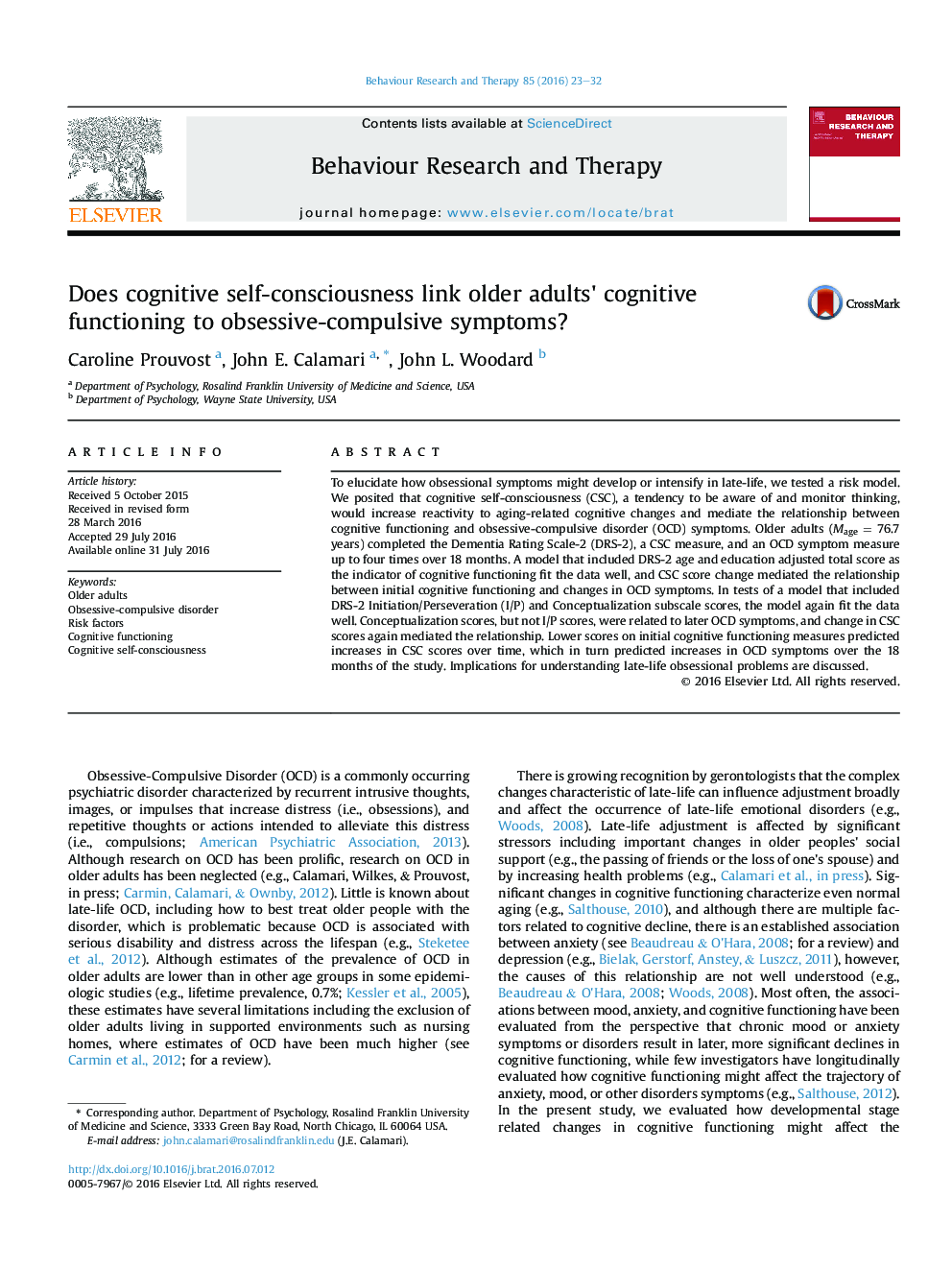| Article ID | Journal | Published Year | Pages | File Type |
|---|---|---|---|---|
| 901753 | Behaviour Research and Therapy | 2016 | 10 Pages |
•We tested a risk model for late-life obsessive compulsive disorder symptoms (OCD).•Tested whether cognitive self-consciousness (CSC) mediated the relationship between cognitive functioning and OCD.•Lower cognitive functioning scores predicted increases in CSC, which predicted increases in OCD.•We discuss implications for understanding late-life obsessional problems.
To elucidate how obsessional symptoms might develop or intensify in late-life, we tested a risk model. We posited that cognitive self-consciousness (CSC), a tendency to be aware of and monitor thinking, would increase reactivity to aging-related cognitive changes and mediate the relationship between cognitive functioning and obsessive-compulsive disorder (OCD) symptoms. Older adults (Mage = 76.7 years) completed the Dementia Rating Scale-2 (DRS-2), a CSC measure, and an OCD symptom measure up to four times over 18 months. A model that included DRS-2 age and education adjusted total score as the indicator of cognitive functioning fit the data well, and CSC score change mediated the relationship between initial cognitive functioning and changes in OCD symptoms. In tests of a model that included DRS-2 Initiation/Perseveration (I/P) and Conceptualization subscale scores, the model again fit the data well. Conceptualization scores, but not I/P scores, were related to later OCD symptoms, and change in CSC scores again mediated the relationship. Lower scores on initial cognitive functioning measures predicted increases in CSC scores over time, which in turn predicted increases in OCD symptoms over the 18 months of the study. Implications for understanding late-life obsessional problems are discussed.
